If you’re not a rough driver and take good care of your car, your brake shoes will last about 30,000 to 35,000 miles. This timeframe will change depending on your driving style, maintenance, and road/weather conditions.
Let’s learn what brake shoes exactly are, why they wear out, and how you can realize when it’s time to change them.
What Are Brake Shoes?
Brake shoes are what your car uses to stop when you hit the brake pedal. The brake shoe is a crescent-shaped component of the drum brake system often seen in older models. They are usually made from steel, copper, iron, and several other alloys.
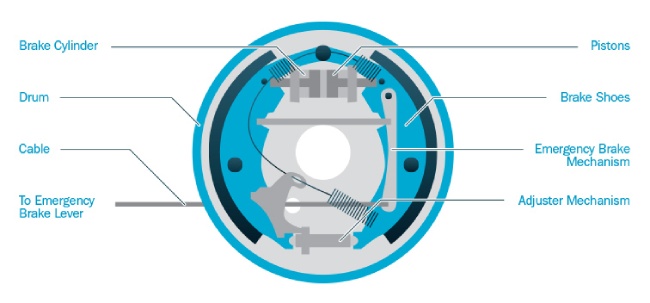
Once you hit that brake pedal, your car applies hydraulic pressure via the fluid inside your master cylinder to your wheel cylinders, which creates an outward force.
This force then presses the brake shoes against the spinning brake drums, gradually slowing and stopping your car. Brake shoes have rough friction material on one side which creates friction and gradually slows you down.
How Long Do Brake Shoes Last?
Over time, the friction-inducing material of the brake shoes wears out. How long your brake shoes will last depends on a number of things like how heavy your payload/car is, what the road condition is, and how you drive.
Under normal conditions, brake shoes are designed to last about 30,000 to 35,000 miles before wearing out. However, there are a set of prerequisites you need to maintain if you want your brake shoes to last that long.
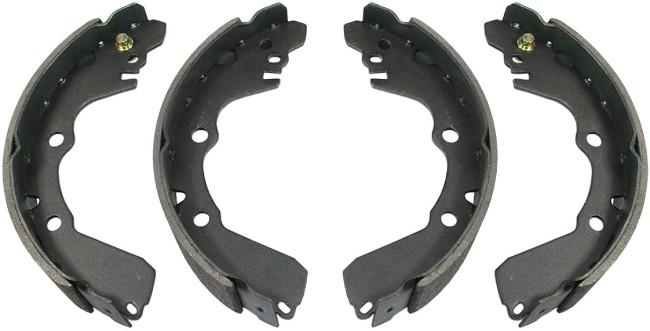
You can lengthen the lifespan of your brake shoes by adopting a controlled driving style, regularly maintaining your car, and driving mostly in favorable road/weather conditions.
Just like these conditions can make your brake shoes last longer; failing in one or more of them, facing an accident, or brake fluid leaks will similarly cause your brake shoes to wear out faster than usual.
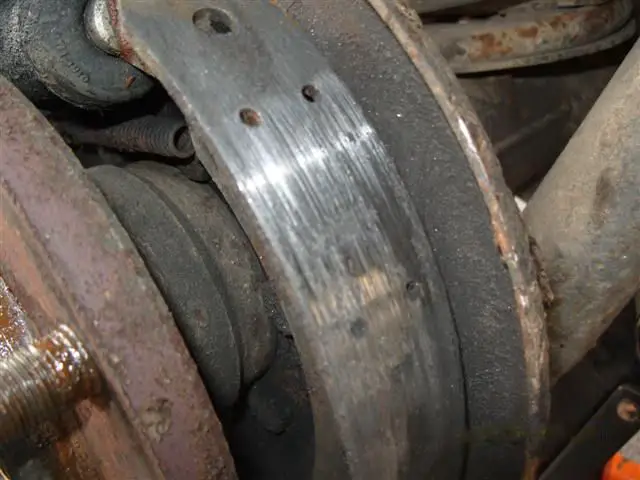
That is why some people can even go more than 80,000 miles before bedding to change their brake shoes whereas some others need to change theirs every 10,000-15,000 miles.
Signs of a Weak Brake Shoe
Sound
This indication will be hard to miss. If your brake shoes are near their end, the friction-inducing material won’t be able to get a strong grip on your wheels and as a result, you’ll hear a loud, high-pitch grinding/scratching noise whenever you press the brake paddle.
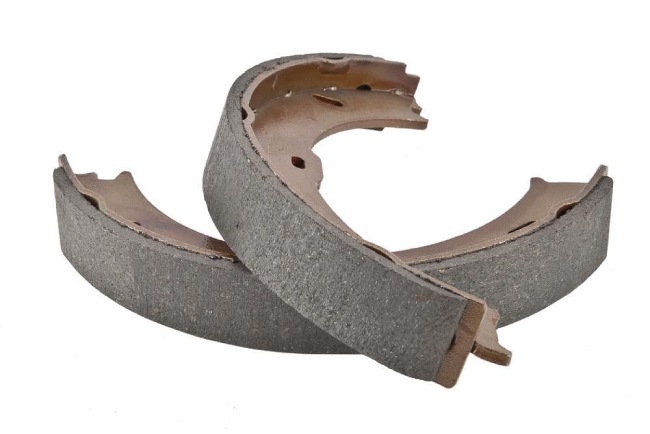
This is one of the biggest symptoms that will let you know when to change your brake shoes. What this sound basically refers to is a brake failure waiting to happen. Do not try to repair your brake shoes. Replace your brake shoes, or the entire drum break, if necessary.
Vibration
The misery won’t just stop at the loud noise. When your brake shoes wear out, they won’t be able to produce enough friction to stop the wheel. As a result, whenever you apply the brake, you’ll feel your car vibrating/shaking.
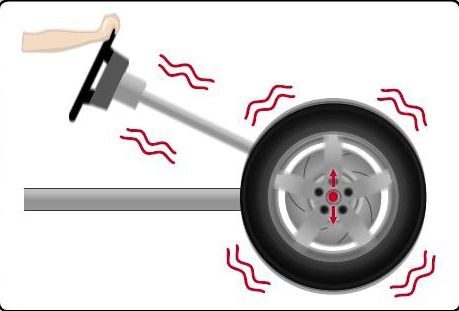
This is a common incident for people who use drum brakes on the rear wheel. This will not only make your brake pedal feel inconsistent, but it also will make the driving uncomfortable. It’s time to change your brake shoes if you feel your car shaking while you apply the brake.
Loose handbrake
Your car’s overall capacity to break on the spot will reduce significantly if your brake shoes get worn out. You will also feel the effect of your brake shoes flattening through your handbrake. Hand brakes are designed to stop immediately when applied.
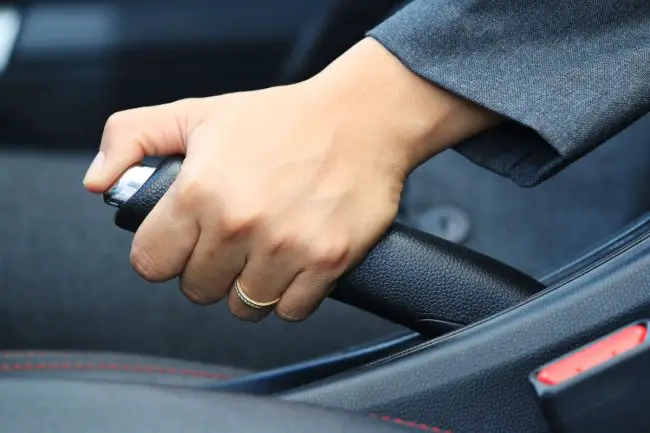
If your car takes a few moments to stop even after you apply the handbrake, that is a good sign your brake shoes may need a replacement. This may also happen with a loose connection problem. It would be wise to check your vehicle before you decide to replace the brake shoes.
Vehicle pulling
Once your brake shoes wear out unevenly, you’ll have a hard time controlling your vehicle on the road. Uneven wear will make your car pull towards one side and that can turn dangerous very quickly.

If you face any of the indications listed above, take your car for an inspection and reinstate your controlling power over the brakes. Remember, the worst thing that can happen to a car is a brake failure in the middle of a busy road.
FAQs
1. What is the minimum thickness for brake shoes?
Ans: According to the Federal Motor Carrier Safety Administration, a car with drum brakes won’t be able to legally hit the road if the thickness of the brake shoes goes under ¼ inch (6.4mm). The thickness is usually measured at the shoe center.
2. Do parking brake shoes wear out?
Ans: Yes, of course. Just like the traditional brake shoes, your parking brake shoes were also designed to last 30,000 – 35,000 miles if you maintain and drive the car under proper conditions. The limitation will change depending on the driving style and the maintenance quality.
3. How much does it cost to replace brake shoes?
Ans: Around $200-350 depending on the replacement type and the dealer. Some dealers will charge more than others. The components cost around $60-150 and the labor cost is usually $150-$250.
4. How long do brake drums last?
Ans: Just like the brake shoes, how long your brake drums will last depend on your driving style, road/weather condition, and how well you maintain your vehicle. Brake drums are designed to last around 150,000 to 200,000 miles.


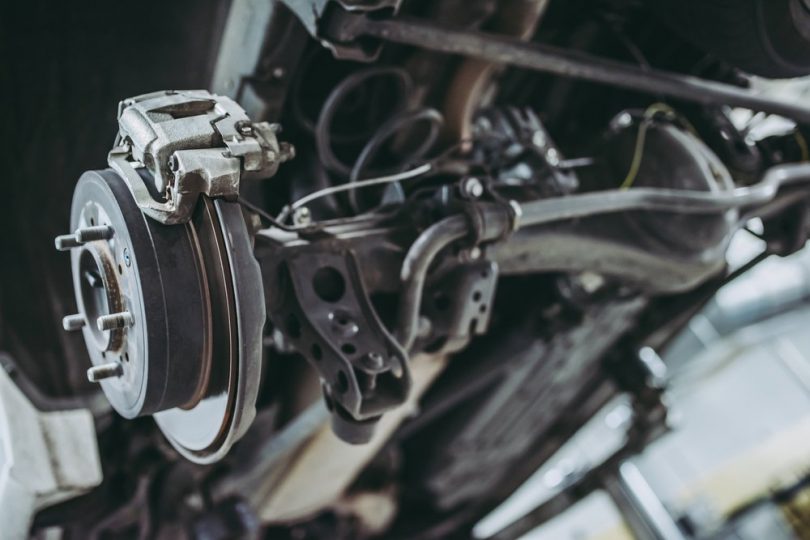
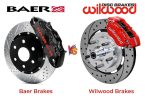

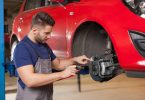
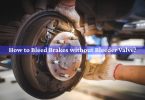

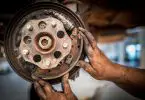

Leave a Comment